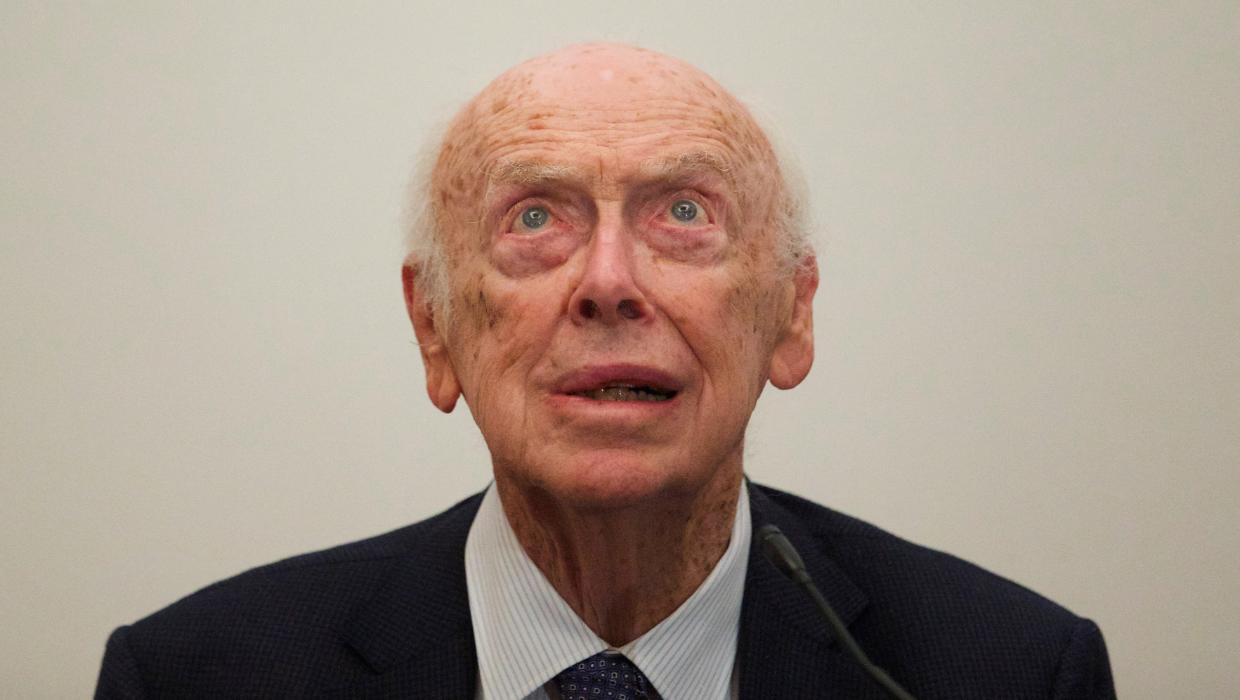Science
Renowned Scientist James Watson Passes Away at 95, Legacy Mixed

James Watson, the co-discoverer of the structure of DNA, died on March 30, 2023, at the age of 95. His groundbreaking work in 1953, alongside Francis Crick, unveiled the twisted-ladder shape of DNA, revolutionizing the fields of genetics and molecular biology. This discovery earned Watson and Crick the Nobel Prize in Physiology or Medicine in 1962, a testament to their monumental contributions to science.
Despite his early accolades, Watson’s later years were marred by controversy. Over the decades, he faced significant backlash for various statements deemed offensive, leading to professional repercussions. His remarks on race and intelligence particularly drew condemnation, resulting in his suspension from the Cold Spring Harbor Laboratory, where he had served as president.
Early Achievements and Scientific Impact
Watson’s journey into the scientific spotlight began when he was just 24 years old. His collaboration with Crick at the University of Cambridge led to the creation of a model that demonstrated how DNA carries genetic information. This work not only laid the foundation for modern genetics but also spurred advancements in medicine, biotechnology, and forensic science.
In recognition of his achievements, Watson was elected to the National Academy of Sciences and received numerous other honors throughout his career. His contributions significantly shaped the understanding of heredity and the molecular basis of life, making him a pivotal figure in 20th-century science.
Controversies and Professional Fallout
In contrast to his scientific legacy, Watson’s later comments on sensitive topics have overshadowed his earlier accomplishments. In interviews and public appearances, he expressed views that many considered deeply problematic. These statements led to a loss of respect within the scientific community and ultimately resulted in his removal from several prestigious positions.
In 2019, *The Sunday Times* published an interview in which Watson reiterated controversial beliefs, prompting even further backlash. The reaction from the scientific community was swift, with many distancing themselves from his views. The Cold Spring Harbor Laboratory issued a statement affirming its commitment to diversity and inclusion, emphasizing that Watson’s views did not reflect the institution’s values.
Despite the controversies, Watson’s scientific contributions remain undeniably significant. His role in the discovery of DNA’s structure has paved the way for numerous breakthroughs in genetics, including the Human Genome Project and advances in gene therapy.
Watson’s passing marks the end of an era in molecular biology. While his legacy is complex, encompassing both groundbreaking scientific achievements and contentious social viewpoints, his role in shaping modern science is indisputable.
As the world reflects on his life and work, it is clear that James Watson will be remembered not only for his pivotal role in one of the greatest scientific discoveries but also as a figure who sparked important discussions about ethics in science and society.
-

 World3 months ago
World3 months agoTest Your Knowledge: Take the Herald’s Afternoon Quiz Today
-

 Sports3 months ago
Sports3 months agoPM Faces Backlash from Fans During Netball Trophy Ceremony
-

 Lifestyle3 months ago
Lifestyle3 months agoDunedin Designers Win Top Award at Hokonui Fashion Event
-

 Sports3 months ago
Sports3 months agoLiam Lawson Launches New Era for Racing Bulls with Strong Start
-

 Lifestyle3 months ago
Lifestyle3 months agoDisney Fan Reveals Dress Code Tips for Park Visitors
-

 World4 months ago
World4 months agoCoalition Forms to Preserve Māori Wards in Hawke’s Bay
-

 Health3 months ago
Health3 months agoWalking Faster Offers Major Health Benefits for Older Adults
-

 Politics3 months ago
Politics3 months agoScots Rally with Humor and Music to Protest Trump’s Visit
-

 Top Stories4 months ago
Top Stories4 months agoUK and India Finalize Trade Deal to Boost Economic Ties
-

 Entertainment3 months ago
Entertainment3 months agoExperience the Excitement of ‘Chief of War’ in Oʻahu
-

 World4 months ago
World4 months agoHuntly Begins Water Pipe Flushing to Resolve Brown Water Issue
-

 Science4 months ago
Science4 months agoNew Interactive Map Reveals Wairarapa Valley’s Geological Secrets









